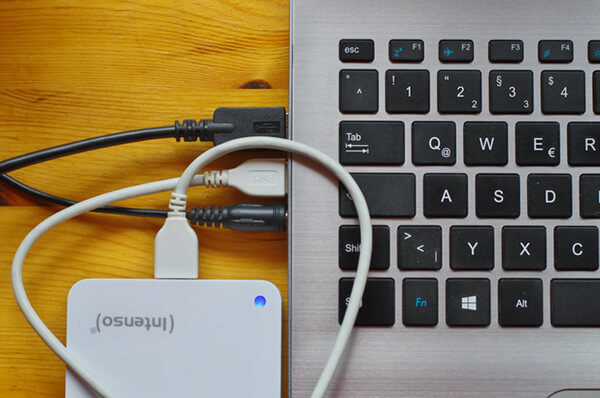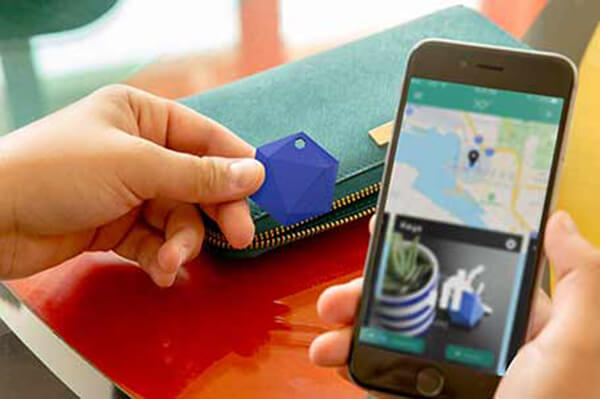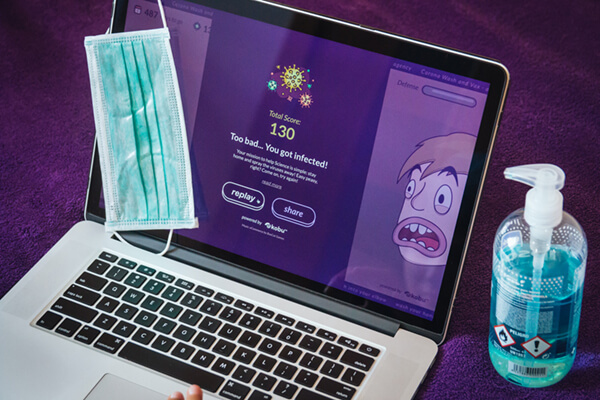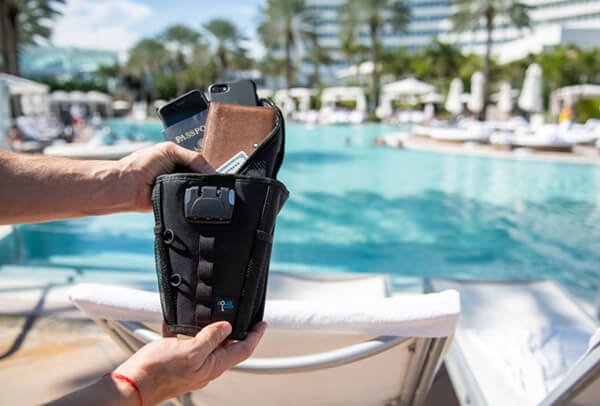Did you know that the company Intel created a holiday?
It’s called World Password Day. With online security becoming more important every day, it’s critical that we stay up to date with our password protection.
Hackers everywhere are getting more sophisticated. Your personal information is at constant risk if you don’t keep up with online safety.
Below you will discover 5 simple ways to protect your devices and stay safe online. We also included 5 amazing innovations that will make protecting your data easier than ever before.
You’ll find innovations that can instantly speed up your old computer, protect your precious pictures and videos, and scan your computer for viruses before it boots up. Scroll down to read our 5 tips now!
Tip #1: Keep Your Computer Running at Optimal Speed

Source: Unsplash
Your computer’s speed is very important to online safety. Operating systems are constantly being upgraded to stay ahead in the “arms race” of online safety. If your computer runs too slowly, it might not be able to handle the additional data these security updates provide. Without these updates, your computer could be targeted by malicious software that sneaks onto your hard drive.
One simple trick to amp up your computer’s speed is to run its defragment program. Defragging helps your computer organize its hard drive data and boost its speed. Better-organized data means your computer doesn’t have to work as hard to access it. The result? A faster, safer computer.
But, if your computer is very old, even defragging may not help. In that case, we recommend the Xtra-PC. This simple little USB stick essentially replaces your computer’s old operating system with a new and improved one (called Linux) that won’t let you down again like a normal computer does.
And, you don’t need any fancy tech or programming skills, either! The Xtra-PC just plugs into your computer’s USB port, the same place your mouse or keyboard plugs in. It’s fast, easy, and convenient!
Click HERE to learn more about the Xtra-PC
Tip #2: Backup Your Important Data

Source: Unsplash
Some experts estimate that at some point, nearly everyone’s computer will be hacked or have their personal information stolen. One especially nasty tactic these criminals use is to infect your computer with ransomware.
Ransomware allows nefarious programmers to take over your computer and literally hold it hostage in exchange for a hefty ransom. Your computer’s security is important, and experts recommend frequently backing up your data. If your computer crashes because of a virus or is held captive by a hacker, at least your important data will be protected elsewhere.
For most of us, our important data extends beyond passwords, Social Security numbers, and bank accounts. Some of our most prized possessions are pictures and videos of our loved ones. For the easiest, fastest way to save your pictures and videos, we recommend ThePhotoStick OMNI.
ThePhotoStick OMNI is a simple little USB device that plugs into your computer. It instantly scans your device for photos and videos, backs them up, and secures them with just one click. Here’s the best part: ThePhotoStick OMNI works with all of your devices! It has adaptors that fit all Windows computers, all Mac computers, all smartphones, and all tablets. Get just one of these handy little devices and you’ve got easy protection for your most precious memories.
Click HERE to learn more about ThePhotoStick OMNI
Tip #3: Find Your Lost Gadgets (Before Someone Else Does!)

Did you know that 70 million smartphones are lost each year?
Frustratingly, only 7% of those lost devices are ever recovered. Not only is losing your mobile device a pain, but it puts your important data at serious risk. Even with passwords and other ways of safeguarding data on your phone, remember that hackers are constantly improving their skills.
Keep your cell phone safe with these easy, low-tech solutions:
- Put your cell phone in the same place
We are creatures of habit, so when you set your phone down, put it in the same place whenever possible.
- Protect it with a password or thumbprint
Passwords are great but don’t use the same password for your smartphone that you use for your online banking or shopping accounts, etc.
- Stay organized
This sounds simple, but with better organizational skills, the likelihood of losing your phone drops sharply.
- Don’t put your phone in your back pocket
It’s far too easy for a pickpocket to sneak up to you and swipe your cell phone while you are walking.
- Get a cell phone locator device
With a simple location device, you can easily track down your misplaced phone and give yourself a chance of finding it before a stranger does. The best option we have found is the XY4+ made by a company called XY Find It.
While there are other similar devices on the market, they don’t match the XY4+’s awesome capabilities. It has the longest range, loudest sound, and even a battery that lasts 5 years! Give yourself peace of mind and save yourself the stress and worry of searching for your lost cell phone (and tons of other lost items) with XY4+.
Click HERE to learn more about the XY4+ by XY Find It
Tip #4: Keep Your Computer’s Virus Protection up to Date

Source: Unsplash
Using your computer in the 21st century without proper virus protection is sort of like wandering around in a minefield blindfolded. Sooner or later, something bad is going to happen.
Good antivirus protection keeps an eye on every file that enters your computer. It’s designed to check for any suspicious-looking or malicious software. These days, it’s so easy to pick up viruses from infected files, websites with poor security, and more.
Virus protection protects your computer from data thieves, virus-loaded thumb drives, and even extends its life. While having regular virus protection remains a necessity when surfing online, it’s also a good idea to check for viruses before even firing your computer up each day.
One great option we recommend is the FixMeStick. This is an easy-to-use device that scans your computer for viruses before your computer boots into its normal operating system.
Here’s the best part: The FixMeStick automatically updates itself and learns faster than the scammers! It continually prevents all possible infections as they “come onto the market.” But, just because the FixMeStick is so advanced, doesn’t mean it’s hard to use. It was designed from the ground up to make virus protection fast and easy for new computer users.
The FixMeStick works by “sucking” the viruses out of your computer. And, it prevents new viruses being developed by scammers from coming onto your computer in the first place. All you do is plug it into your computer’s existing USB port. Virus protection has never been so easy.
Click HERE to learn more about the FixMeStick
Tip #5: Keep Your Mobile Devices Safe Out in Public

Hackers are constantly on the prowl in public, waiting for an opportunity to steal your data at a moment’s notice. But, you can use your phone, tablet, computer, and more safely in public by following a few simple strategies. Below are 4 simple ways to keep your data safe in public.
- Set a short screen time
If you set your phone down on a table in a restaurant or other public place, it remains on for a few moments. This gives thieves the opportunity to hack into your phone if it’s left unattended. By setting a short screen time, your phone’s screen will “go dark” faster and lock itself automatically.
- Turn off Bluetooth
If your Bluetooth is turned on in public, your phone will automatically scan for other Bluetooth devices and try to connect to them. Hackers often try to tempt you with bogus files or pictures in public. Never accept any connection requests unless you are sure they are safe and legit.
- Turn off Wi-Fi
As you walk around in public, your phone’s Wi-Fi will search for other internet connections and try to connect to them. You find these most often in shopping malls, restaurants, gas stations, and hotels. When your phone connects to another Wi-Fi network, it leaves little trails of breadcrumb knowledge back to you.
- Beware of fake Wi-Fi networks
If you’re in public and using your phone, it’s tempting to connect to a network without password protection for easy internet access. Unfortunately, hackers can easily set up a fake Wi-Fi network simply to steal your information. Only connect to legitimate Wi-Fi networks.
- Protect your phone from theft
With all of this talk about smartphone security, it’s important to remember how small these devices are. It’s easy to turn your back for just a moment only to find your phone has been stolen moments later. And your valuables are at risk than when you’re outside trying to enjoy the nice weather.
There is an easy way to keep your phone and other items secure when in public called the FlexSafe. It’s a simple, portable safe for securing your valuables when out in public. We love it because of its track record: It was voted the 2017 Hotel Product of the Year with over 40,000 sold and counting!
FlexSafe is easy to use. Drop your smartphone and other valuables inside. Zip it up. Lock it to a fence, bike rack, or park bench. Voila! Your belongings are secure and will be safely waiting for you when you return.
Click HERE to learn more about FlexSafe